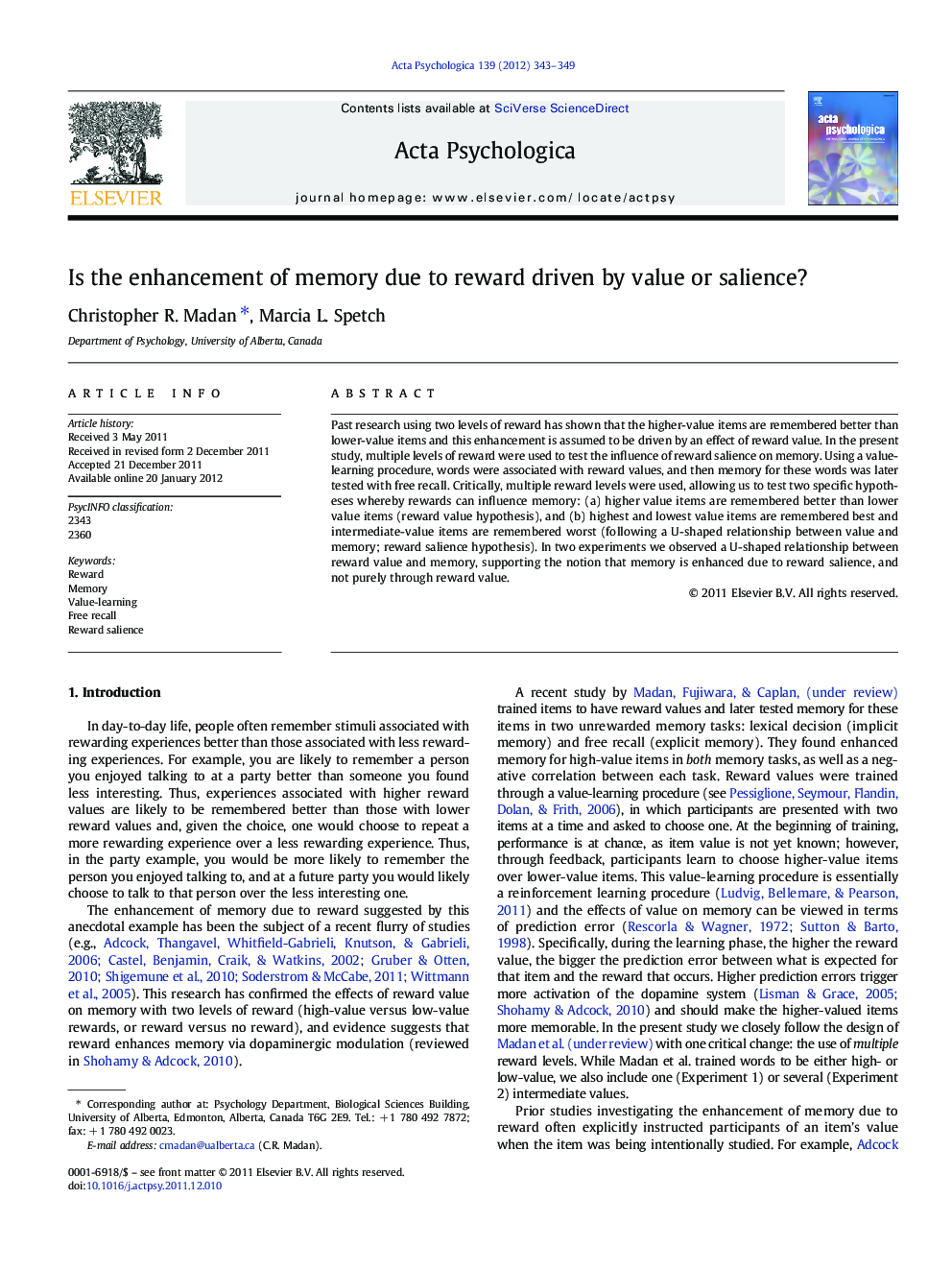| Article ID | Journal | Published Year | Pages | File Type |
|---|---|---|---|---|
| 920000 | Acta Psychologica | 2012 | 7 Pages |
Past research using two levels of reward has shown that the higher-value items are remembered better than lower-value items and this enhancement is assumed to be driven by an effect of reward value. In the present study, multiple levels of reward were used to test the influence of reward salience on memory. Using a value-learning procedure, words were associated with reward values, and then memory for these words was later tested with free recall. Critically, multiple reward levels were used, allowing us to test two specific hypotheses whereby rewards can influence memory: (a) higher value items are remembered better than lower value items (reward value hypothesis), and (b) highest and lowest value items are remembered best and intermediate-value items are remembered worst (following a U-shaped relationship between value and memory; reward salience hypothesis). In two experiments we observed a U-shaped relationship between reward value and memory, supporting the notion that memory is enhanced due to reward salience, and not purely through reward value.
► Studies using two levels of reward have shown better memory for higher value items. ► We utilized multiple reward levels in a value-learning task. ► Memory for words was later tested in free recall. ► Memory performance had a U-shaped relationship with reward value. ► Enhanced memory is driven not only by reward value but also by reward salience.
